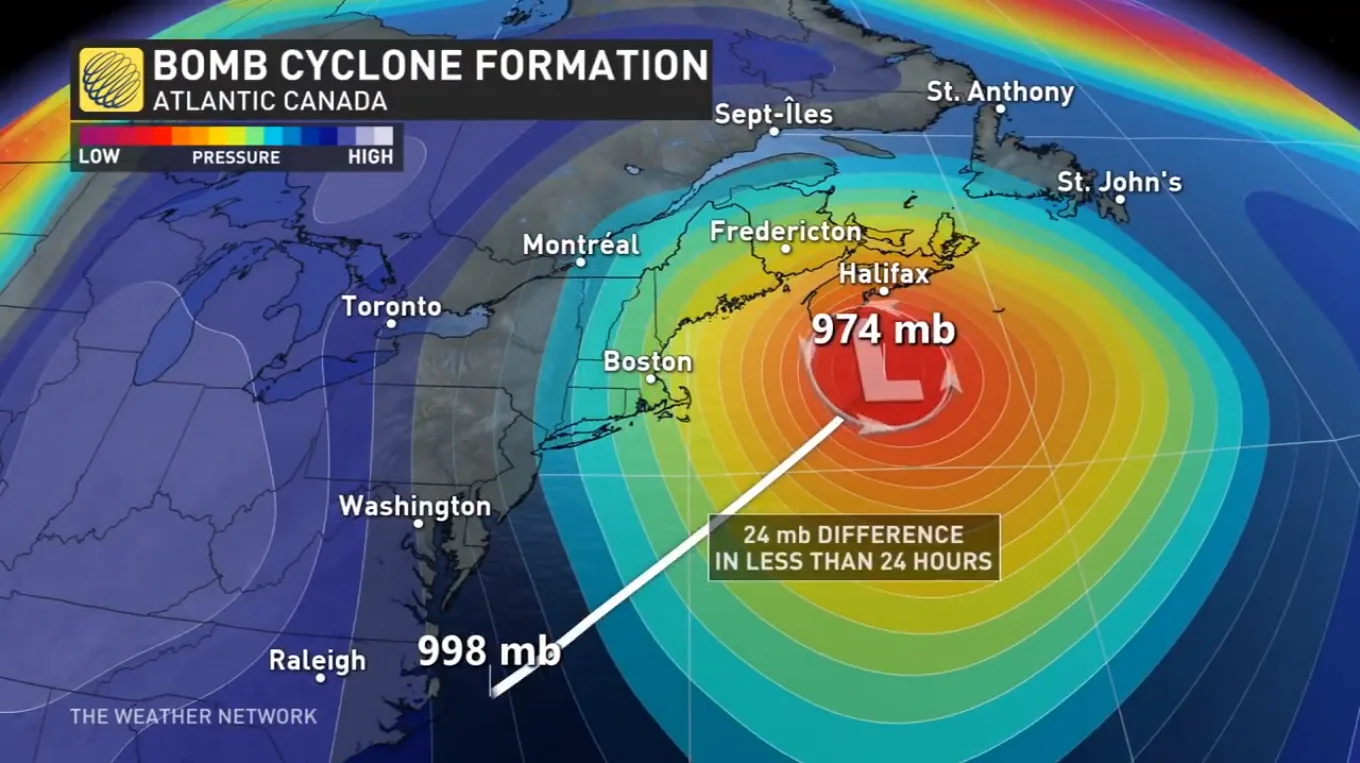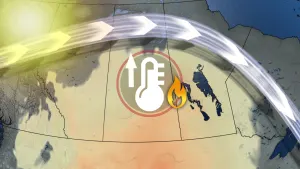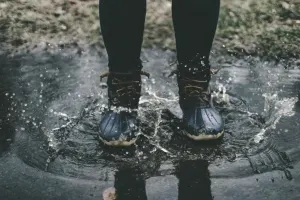
Is the weather fully to blame for your migraine?
Not all headaches are one and the same
Do you or anyone you know get a migraine when a low pressure system moves in?
It's a question I posed on Twitter and the responses poured in just a few hours.
“My daughter and I both suffer severe headaches with the pressure changes,” wrote one user. “Mine are more sinus pressure and swelling but my daughter gets migraines.”
Another user said, “Yes - my wife is often affected by the change in pressure.”
And one of the more serious responses came from user Lisa, who stated, “I get totally debilitating migraine the day before. Aura, nausea and the feeling like someone filled my head with razor blades, then shook it up. Can't stand light or sound. Never considered such a cause until I saw the [segment] on [The Weather Network].”
According to my followers, low pressure systems can have a varying effect on individuals, and some, none at all.
To get a better understanding of how these weather-triggered headaches play out, I reached out to social media influencer, Kayla Short (@shortpresents on Instagram), who told me she can immediately sense when atmospheric pressure is beginning to change.
"It's kind of tricky to explain but it's sort of like a heaviness that comes across my forehead or in through my neck and shoulders,” she said. “I have some old injuries, so I can pretty much tell you when it's going to rain because I get a limited mobility in through my shoulder and then, of course, unfortunately, I do get migraines. So whenever there's, like, something brewing, I know that I need to plan to take it easy because if I don't, I'll probably be in trouble."
In Atlantic Canada, particularly, pressure can drop quite rapidly in events referred to as 'weather bombs'.
“The phrases 'weather bomb' and 'bomb cyclone' stem from the term bombogenesis or the rapid intensification of a low-pressure system in a short period of time,” explains Dennis Mersereau, a writer at The Weather Network. “Meteorologists use different metrics to measure bombogenesis, but the most widely used criteria is when a low’s minimum pressure falls 24 millibars in 24 hours.”

So needless to say, if you hear the term 'weather bomb’ while tuning into The Weather Network, you should probably do like Kayla, and plan to take it easy until that ferocious storm passes through.
RELATED: 'Weather bombs': Explosive storms that create ferocious conditions
WHAT THE RESEARCH SAYS
Professor Emeritus of Neurology, Dr. Werner Becker, says research establishing a direct connection between migraines and weather can be difficult because migraine sufferers have a number of triggers that range from things like stress to diet, to even a lack of sleep. Dr. Becker says it often takes multiple triggers to add up and cause one migraine.
"There has been research in animals which indicates that animals at least sense barometric pressure changes through the inner ear,” he explained. “So it would seem likely that humans, as well... the brain can sense barometric changes through the inner ear, so the brain is aware of falling barometric pressure, for example, and this would seem to cause some chemical changes in the brain which would result in triggering a migraine headache."
As for joint aches and pains, studies on rats have shown a link to the weather and chronic pain.
"The rats have chronic pain in the sciatic nerve distribution, so this is in the leg, it's far away from the head, and it does seem that changes in barometric pressure can make the rats express more pain behaviour if they have that painful situation going on."
HOW TO MANAGE YOUR WEATHER-TRIGGERED MIGRAINES
Dr. Becker says there are three general ways to make things better if you're a weather-sensitive migraine sufferer.
"One is you can take something preemptively, in the hours before the weather system comes in, for example taking a dose of naproxen sodium."
The only problem is if it's a busy weather month and you get migraines frequently, you can't do this too often because you'd then be susceptible to a medication overuse headache.
"The second thing one can do when one has frequent migraine attacks is [to] go on a preventative medication."
Dr. Becker's third strategy doesn't involve medication.
"Try to minimize other migraine triggers if a weather change is coming in."
As always, be sure to consult with your doctor before starting any new medication.
For more information on weather-triggered migraines, watch the video that leads this article.
Thumbnail image source: Getty Images/Rawpixel. Creative #: 938919394.
Editor's note: This article was originally published on Sept. 13, 2022.










